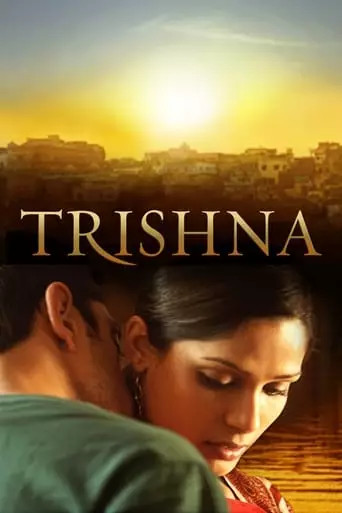
Trishna (2011) Watch Online Free
When her father is killed in a road accident, Trishna’s family expect her to provide for them. The rich son of an entrepreneur starts to restlessly pursue her affections, but are his intentions as pure as they seem?
Trishna is a modern-day adaptation of Thomas Hardy’s Tess of the d’Urbervilles, set in the rural countryside and bustling cities of contemporary India. The film follows Trishna (played by Freida Pinto), a young woman from a poor family in Rajasthan. Her beauty and intelligence catch the eye of Jay (Riz Ahmed), the wealthy son of a hotel owner. As their relationship develops, Trishna is drawn into a complex and ultimately tragic love affair marked by manipulation, betrayal, and a stark social divide. Despite her initial independence and the promise of a better life, Trishna finds herself increasingly trapped by Jay’s abusive and controlling behavior. The film delves into themes of class, gender, and the exploitation of rural women in modern India, ultimately following the tragic trajectory of Hardy’s original work.
Analysis and Themes The film brings Hardy’s themes of social class, gender, and fate into a contemporary context. While Jay is seemingly charming and rich, his ignorance of the power imbalance in his relationship with Trishna leads to her emotional and physical suffering. The film examines the concept of personal freedom versus societal expectation, where Trishna’s life is shaped by forces beyond her control. The narrative powerfully critiques the postcolonial remnants of class hierarchy and how modern India, despite its progress, still holds onto traditional values that restrict women.
Trishna’s tragic journey is also portrayed as a conflict between love and survival. Her love for Jay, despite his cruelty, complicates her sense of agency. The movie uses its visuals, including striking cinematography and a sweeping musical score by Shigeru Umebayashi, to emphasize Trishna’s internal struggle and the stark contrast between rural poverty and urban affluence
Impact of the Movie Trishna presents a nuanced look at the intersection of personal dreams and societal constraints. The film’s portrayal of Trishna’s endurance in the face of oppression resonates deeply, urging the audience to reflect on the roles that culture, gender, and class play in shaping individual destinies. It speaks to universal themes of love, power, and suffering, making it a thought-provoking and emotionally charged experience. While it may not deliver all of its emotional impacts in a straightforward manner, the slow-building tension and tragic resolution leave a lasting impression on the viewer.
After watching Trishna, you may feel a mix of emotions ranging from sadness and empathy to frustration. The film’s somber ending, combined with the subtle portrayal of Trishna’s suffering, lingers long after the credits roll. It’s a poignant reminder of the social inequalities that still persist in the modern world, particularly in the context of gender and class. Viewers may find themselves reflecting on the delicate balance of power in relationships and the devastating effects of exploitation.
Overall, Trishna is an emotionally rich and thought-provoking film that leaves you contemplating the intersection of personal agency, social pressures, and fate
